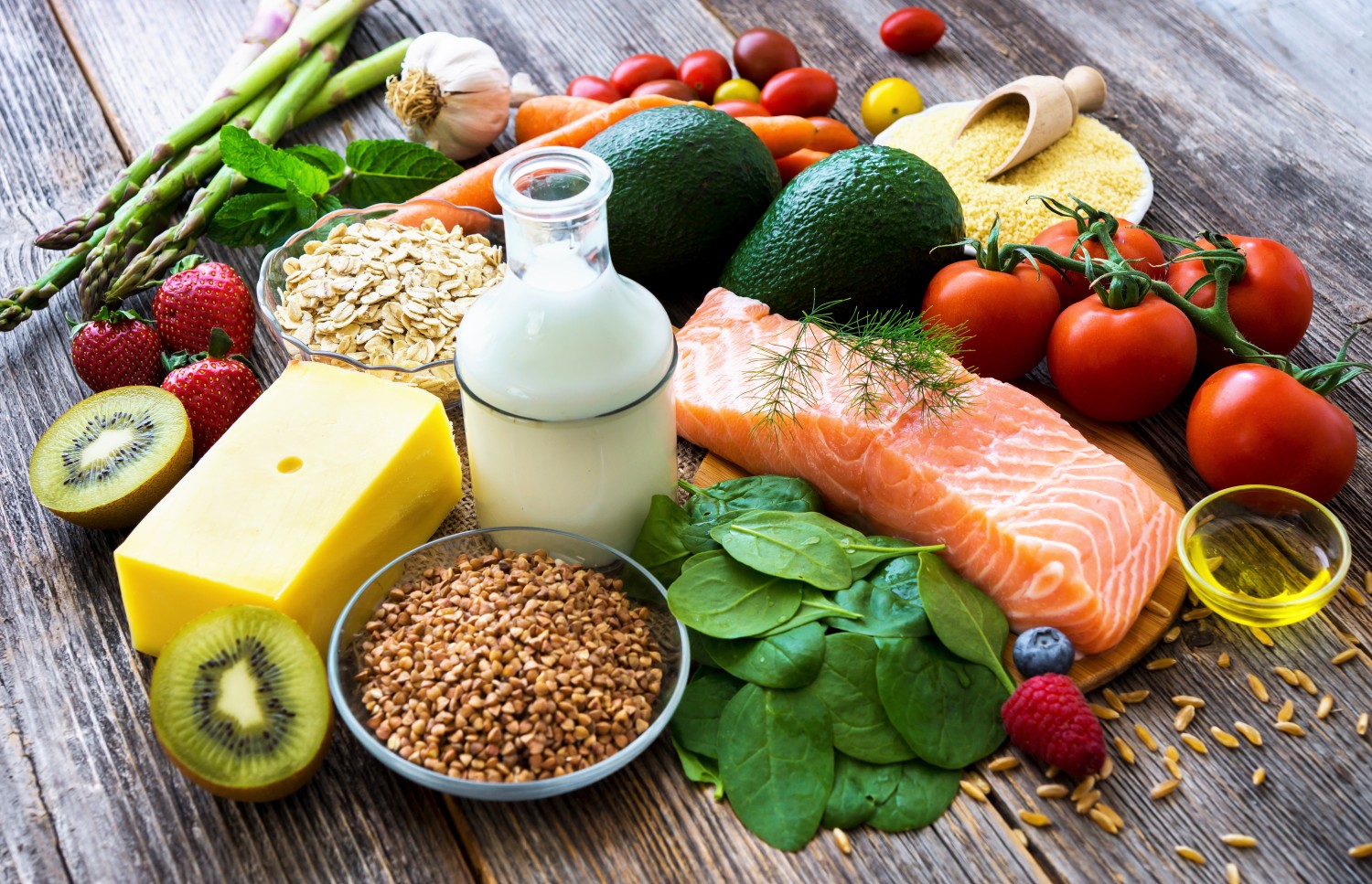How a Rainy Night and Beyoncé Kept DC Metro Running
August 9, 2023
In the captivating world of music and entertainment, artists wield a unique power that extends beyond the boundaries of the stage, leaving an indelible mark on the hearts and minds…

A stroke is a significant medical emergency that can have lasting effects. In the US, it is the fifth most common cause of death and the primary source of long-term impairment. However, there are measures you can take, like including particular foods in your diet, to lower your risk of stroke.
Eating foods high in specific vitamins and minerals can protect your brain and blood vessels, which lowers your chance of stroke. This post will examine seven of the most effective meals for preventing strokes. So let’s get started and learn more about the foods that can lower your risk of stroke while also assisting in brain protection.
Salmon is unparalleled when it comes to preventing strokes. It contains a lot of omega-3 fatty acids, which help reduce inflammation and improve the health of blood vessels. Eating salmon can also lower the chance of blood clots, one of the leading causes of stroke. Omega-3 fatty acids and B vitamins found in salmon help the body better process homocysteine and reduce the risk of stroke. Salmon is also a great source of these nutrients. This compound has been related to an increased risk of stroke.
Salmon is also a great source of protein, which lowers cholesterol and enhances cardiovascular health in general. A few times a week, salmon servings can lower your stroke risk and support heart health. To lower your risk of stroke, the American Heart Association advises eating at least two meals of fish each week, such as salmon. Salmon is not only incredibly helpful in preventing strokes, but it can also be prepared in various ways. Thus, to help lower your risk of stroke, including salmon in your weekly diet plan.
One of the best meals to help prevent stroke is blueberries. They have a lot of antioxidants, which help to strengthen the heart by lowering inflammation and blood vessel damage. They also include a lot of dietary fibre, which helps lower cholesterol and enhance the condition of all blood vessels. In addition, vitamin C, which helps shield the brain against damage brought on by stroke, is abundant in blueberries.
Blueberries can also lower your chance of blood clots, a major contributor to stroke. Also, blueberries enhance your intellect and memory, making it simpler to remember to take your meds or adhere to your doctor’s orders. Blueberries can be consumed raw, cooked, or blended into other foods. Thus, eat more blueberries to lower your risk of stroke and enhance your general health. You can lower your risk of stroke by aiming for seven servings of fruits and vegetables daily.
Oatmeal is one food that can help lower your risk of stroke. A balanced diet should include whole grains, which oats are a great source of. Magnesium, selenium, and vitamin B6 are just a few of the critical vitamins and minerals found in whole grains. In maintaining healthy blood arteries and lowering cholesterol levels, these nutrients help lower inflammation and the risk of stroke.
Furthermore, whole grain’s high fibre content aids in better digestion, lowering the stroke risk. Fresh fruit and almonds are a nutritious topping for oatmeal that is a terrific breakfast option. Go to better brain health by enjoying a bowl of oatmeal.
Low-fat milk is a great source of numerous vitamins and minerals that can help protect your brain and lower your risk of stroke. It is a fantastic source of calcium, which lowers the risk of stroke and supports the maintenance of healthy blood vessels. Also, milk is a fantastic source of potassium, which lowers cholesterol and helps control blood pressure—both of which are risk factors for stroke. In addition, milk is a wonderful source of vitamin D, which lessens inflammation and enhances blood vessel and brain function.
Being a fantastic source of protein that supports the maintenance of healthy muscles, including those in the brain, low-fat milk is also a great choice. In addition, it has little salt and saturated fat, raising the risk of stroke. You can lower your risk of stroke and enhance your general health by consuming low-fat milk.
Spinach is an incredibly nutritious vegetable packed with vitamins and minerals to help reduce your stroke risk. It is an excellent source of magnesium, an essential mineral for healthy circulation, as it helps keep arteries and veins relaxed, reducing the risk of blood clots. Spinach is also high in folate, which helps produce red blood cells, and vitamins A, B, and K. Vitamin K is especially important for stroke prevention, as it helps regulate blood clotting and blood clotting clots from forming.
Eating spinach regularly can help reduce your risk of stroke and improve your overall health. It is also a great source of fibre, which helps keep your cholesterol levels in check and prevent artery blockage. Spinach can be enjoyed cooked or raw, and it’s one of the best vegetables you can add to your diet to reduce your risk of stroke.
Bananas are delicious and nutritious fruit packed with health-promoting nutrients, including dietary fibre, vitamin B6, and potassium. They are also a great source of prebiotics, which can help reduce inflammation and balance gut bacteria. Consuming bananas can help reduce your risk of stroke by decreasing inflammation, improving gut health, and reducing the risk of high blood pressure. The dietary fibre in bananas helps to reduce cholesterol levels, which can also lower your risk of stroke.
The potassium in bananas helps regulate blood pressure levels and reduce the risk of hypertension, a major risk factor for stroke. Finally, the vitamin B6 in bananas helps protect the brain and reduce the risk of stroke by breaking down homocysteine. This amino acid is linked to stroke and other cardiovascular diseases. A banana contains 422 milligrams. Therefore you should aim for 4,700 per day.
According to New York City-based preventive cardiology dietician Michelle Routhenstein, green bananas, in particular, can lower blood pressure. She claims resistant starch in green, unripe bananas “improves insulin sensitivity.” “Insulin sensitivity enhances blood sugar regulation, which can help support blood flow optimization and blood pressure reduction.”
Sweet potatoes are a nutritious, tasty vegetable that can help reduce your risk of stroke. They are an excellent source of fibre and vitamins A and C, which help protect the brain from damage caused by stroke. Sweet potatoes are also rich in potassium, which helps regulate blood pressure and reduce the risk of hypertension, a major risk factor for stroke.
Additionally, sweet potatoes contain high amounts of magnesium, which helps to relax the blood vessels and improve circulation. Sweet potatoes’ dietary fibre also helps reduce cholesterol levels and improve cardiovascular health. Sweet potatoes can be cooked in various ways, including baking, roasting, or mashing. So, be sure to include sweet potatoes in your weekly meal plan to reduce your risk of stroke and improve your overall health.

A stroke is a serious medical emergency that can have life-changing consequences, but there are steps you can take to reduce your risk of stroke. Certain foods can help protect your brain and maintain healthy blood vessels, reducing your risk of stroke. In addition to eating the right foods, you can make other lifestyle changes to reduce your risk of stroke. Here are some tips to help you reduce your risk of stroke and maintain a healthy lifestyle.
Since high blood pressure is one of the major risk factors for stroke, it’s crucial to monitor and maintain a healthy blood pressure level. Your blood pressure can be controlled by eating a balanced diet, exercising frequently, and minimizing stress. Additionally, avoiding smoking and consuming less alcohol and salt can help lower blood pressure. Your doctor might recommend medications to lower your blood pressure if it’s too high. Your stroke risk can be decreased by controlling your blood pressure.
A wonderful approach to lowering your risk of stroke is through exercise. Frequent exercise lowers cholesterol levels, lowers blood pressure, and improves blood circulation. Five days a week, try to obtain at least 30 minutes of exercise. This includes going for a stroll, jogging, bike riding, swimming, or playing sports. This can lower your risk of stroke and enhance your mood, give you more energy, and help you keep a healthy weight. Thus include exercise in your daily routine to lower your risk of stroke.
Finding techniques to lower your stress levels is crucial because stress increases your stroke risk. Stress can be decreased by setting aside time to unwind and rest. Try yoga, meditation, or deep breathing exercises. Also crucial to lowering stress is getting adequate sleep every night. Create a regular sleep routine and aim for seven to nine hours each night. Finally, communicating with loved ones can assist in lowering stress. Connecting with people who care about you can help you feel better and manage stress.
Since smoking is a major risk factor for stroke, quitting is important if you want to lower your risk. It might be challenging to stop smoking, but numerous services are available to assist you. Discuss pharmaceutical options or other quitting aids with your doctor. Support groups can also be a fantastic way to keep motivated and interact with people attempting to quit. Finally, consider what situations or activities trigger your desire to smoke and devise strategies to avoid or manage them.
Alcohol consumption should be kept to a minimum since excessive alcohol consumption increases the risk of stroke. Men shouldn’t have more than two drinks per day, while women shouldn’t have more than one drink per day, according to the American Heart Association. Defined as consuming four drinks or more in two hours, binge drinking should also be avoided. Reduce your risk of stroke and enhance your general health by limiting alcohol use.